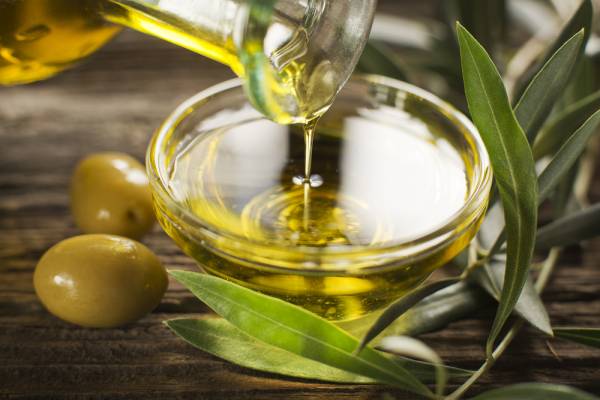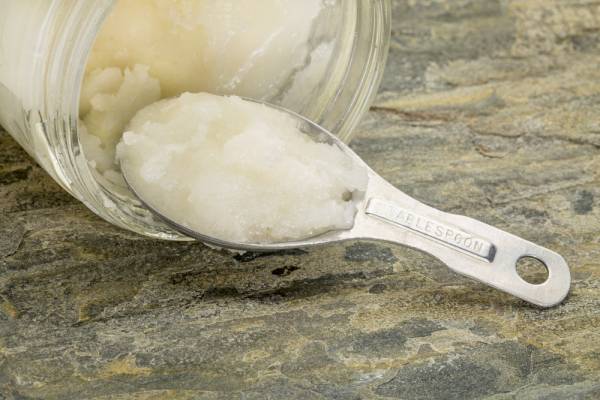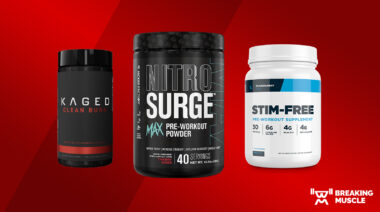We are all more than a little tired of the endless weight-loss pitches and products. The industry has moved from the 1990s late-night TV infomercials to the banner ads found on nearly every website.
With so much garbage out there, it is quite easy to want to give up entirely, believing no products can help with weight loss. Believe me, as a professional in the health and fitness industry, I know the feeling. But there are a few scientifically studied supplements that can aid with weight loss.
“Once you understand that these supplements are not a cure-all, but instead, a well targeted ‘last 15%,’ then you can understand why they may be helpful.”
Now, I weighed my words carefully, and said “aid.” You still must change your diet to a much healthier one, if you’re currently pigging out on junk food. You still must exercise, if you want to make weight loss easier and build muscle. You still need to sleep as much as possible and try to limit stress.
RELATED: Science Says: Weight Loss Supplements Do NOT Work
Once you understand that these supplements are not a cure-all, but instead, a well targeted “last 15%,” then you can understand why they may be helpful. If you’re looking to kick-start your weight loss, taking the right supplement(s) can be key.
Here’s a look at three promising supplements and the science behind why they may or may not work for you.
Oleuropein
Many know there are benefits to olive oil, but they remain unaware of the specific phenolic compounds that are doing the bulk of the work. Supplement manufacturers are not as unaware and have already begun putting oleuropein, one of the phenolic compounds found in olive oil, into their pre-workout supplements.
While this is certainly an interesting idea, the research doesn’t warrant a definitive “yes” to this product. Researchers did find that oleuropein enhances a mechanism of metabolism – but this was in rats. Another interesting study showed that oleuropein reduced body weight gain and visceral fat. This occurred through a slightly different mechanism than the first study, via upregulation of genes involved in WNT10b-mediated signaling. But, again, this study was done on mice, not humans.
“In a recent review of a large amount of the scientific literature available on oleuropein, researchers determined it certainly seems likely that it will have positive effects on humans, but that more research needs to be done.”
A third study, though conducted on mice, proved to also be intriguing. In this study, scientists found oleuropein helped to combat obesity by modulating the expression of molecules involved in the formation of fat and metabolism.
In a recent review of a large amount of the scientific literature available on oleuropein, researchers determined it certainly seems likely that it will have positive effects on humans, but that more research needs to be done. If you are looking to use this compound, I would say it is certainly worth a try, but don’t expect miracles.
RELATED: Top 10 Supermarket Superfoods

Medium-Chain Triglyceride (MCT) Oil
Despite the many claims that coconut oil will help you lose weight, if you were to actually read the scientific studies, you would find that more often than not MCT oil was the substance that was studied. In one study, researchers determined that MCT oil, when included as part of a weight-loss plan, helped subjects lose weight better than when the subjects consumed olive oil.
Another study found that combining MCT oil and capsaicin (the main active component of chili) increased diet-induced fat loss. This study was done on humans and lends further credence that small changes involving these compounds can help with weight loss.
“Many who tout the weight-loss benefits of coconut oil are actually basing their reasoning on MCT oil studies.”
Yet another study showed MCT oil consumption increased energy expenditure and led to loss of fat tissue in humans. This is where weight loss becomes more complex than calories in versus calories out. While you certainly are unlikely to lose any weight if you’re eating a hyper-caloric diet, we must factor in more complex variables like motivation and mood. Sometimes, if we just get up and move, we feel better. Concepts like this are especially vital to long-term success. So any supplement that can increase energy expenditure must be considered a positive tool to have in your toolkit.
Hopefully I’ve illustrated that consuming MCT oil and eating coconut oil are not one and the same. Many who tout the weight-loss benefits of coconut oil are actually basing their reasoning on MCT oil studies. This isn’t to say that consuming coconut oil cannot be a part of a weight-loss plan, especially if you are consuming fewer calories and replacing empty calories with better ones. But it should make you think twice about marketing claims and paying attention to details.
RELATED: The Cult of Supplements and the Danger of Multi-Level Marketing

Conjugated Linoleic Acid (CLA)
CLA is not as well accepted as a weight-loss tool in humans. But it seems that one specific type of CLA – the trans-10, cis-12 isomer – may be the one to look at, if you’re looking to lose weight.
There are plenty of studies on CLA, but most are muddled and unclear, showing far from definitive results. One interesting study showed that the t-10, c-12 CLA isomer appears to alter fat metabolism, through multiple mechanisms. This isomer has also been shown to lower levels of triglycerides.
“Another study showed, definitively, that this isomer reduces body-fat gain, serum leptin levels, and leptin mRNA expression – without affecting food intake.”
In another study, looking at and comparing specific isomers of CLA, researchers found that the trans-10, cis-12 isomer of CLA reduces fat cell creation. Another study showed, definitively, that this isomer reduces body-fat gain, serum leptin levels, and leptin mRNA expression – without affecting food intake. This particular study was done in mice, but it seems promising that humans may benefit, as well.
READ: 8 More Daily Supplements That Might Be Good for You
Conclusion
You can see there is far from a magic bullet in the weight-loss supplement world. The studies we have are not definitive, show modest effects, and can be interpreted in various ways.
I’ve listed three compounds worth trying when looking to enhance or aid weight loss. But, ultimately, you must improve your diet, reduce your calories, and realize that real weight loss takes time.
References:
1. Oi-kano Y, Kawada T, Watanabe T, et al. Oleuropein, a phenolic compound in extra virgin olive oil, increases uncoupling protein 1 content in brown adipose tissue and enhances noradrenaline and adrenaline secretions in rats. J Nutr Sci Vitaminol. 2008;54(5):363-70.
2. Kuem N, Song SJ, Yu R, Yun JW, Park T. Oleuropein attenuates visceral adiposity in high-fat diet-induced obese mice through the modulation of WNT10b- and galanin-mediated signalings. Mol Nutr Food Res. 2014;
3. Shen Y, Song SJ, Keum N, Park T. Olive leaf extract attenuates obesity in high-fat diet-fed mice by modulating the expression of molecules involved in adipogenesis and thermogenesis. Evid Based Complement Alternat Med. 2014;2014:971890.
4. Bulotta S, Celano M, Lepore SM, Montalcini T, Pujia A, Russo D. Beneficial effects of the olive oil phenolic components oleuropein and hydroxytyrosol: focus on protection against cardiovascular and metabolic diseases. J Transl Med. 2014;12:219.
5. St-onge MP, Bosarge A. Weight-loss diet that includes consumption of medium-chain triacylglycerol oil leads to a greater rate of weight and fat mass loss than does olive oil. Am J Clin Nutr. 2008;87(3):621-6.
6. Clegg ME, Golsorkhi M, Henry CJ. Combined medium-chain triglyceride and chilli feeding increases diet-induced thermogenesis in normal-weight humans. Eur J Nutr. 2013;52(6):1579-85.
7. St-onge MP, Jones PJ. Greater rise in fat oxidation with medium-chain triglyceride consumption relative to long-chain triglyceride is associated with lower initial body weight and greater loss of subcutaneous adipose tissue. Int J Obes Relat Metab Disord. 2003;27(12):1565-71.
8. Miller JR, Siripurkpong P, Hawes J, Majdalawieh A, Ro HS, Mcleod RS. The trans-10, cis-12 isomer of conjugated linoleic acid decreases adiponectin assembly by PPARgamma-dependent and PPARgamma-independent mechanisms. J Lipid Res. 2008;49(3):550-62.
9. Rodríguez E, Ribot J, Palou A. Trans-10, cis-12, but not cis-9, trans-11 CLA isomer, inhibits brown adipocyte thermogenic capacity. Am J Physiol Regul Integr Comp Physiol. 2002;282(6):R1789-97.
10. Kang K, Pariza MW. trans-10,cis-12-Conjugated linoleic acid reduces leptin secretion from 3T3-L1 adipocytes. Biochem Biophys Res Commun. 2001;287(2):377-82.
Photos courtesy of Shutterstock.






